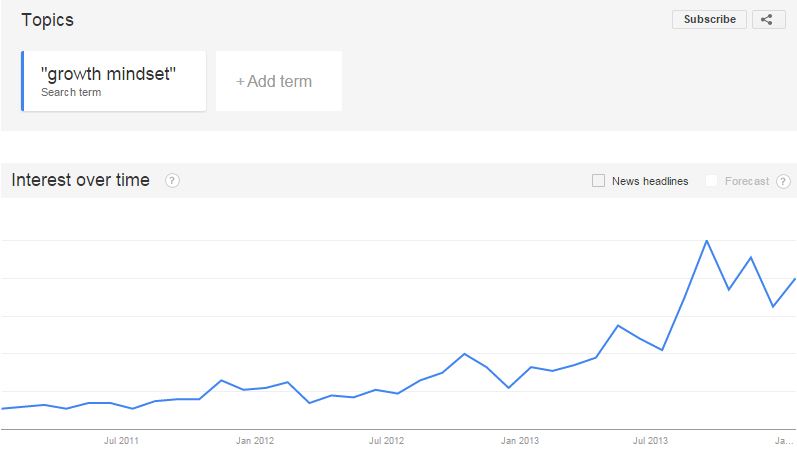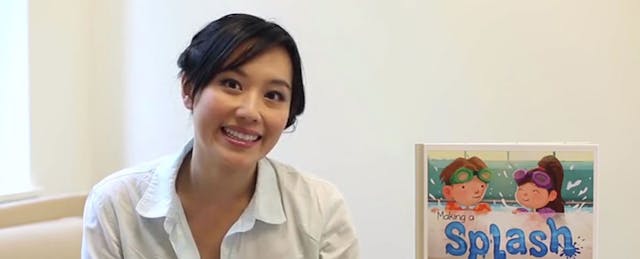Imagine your dream learning environment. Bright classrooms led by well-paid teachers? Supply closets stuffed with new microscopes? Blended? Flipped?
Studies suggest that even the perfect learning environment isn’t enough. Giving students every opportunity available won’t do them much good if they don’t believe they can learn.
It’s these studies that prompted Carol E. Reiley’s new illustrated children’s book, Making a Splash. Grounded in the science of the growth mindset, the book tells the story of siblings Lisa and Johnny, who learn that success at swimming is determined by their level of effort--not by natural talent.
Reiley, a PhD student at Johns Hopkins studying computer science, wrote the book with the goal of bringing more awareness of the growth mindset to parents and children.“Our culture tends to focus on people once they’ve already become successful,” she says. “It’s hard to see the hard work, struggles and failures behind big successes.”
Reiley cites Sal Khan’s Learn Anything movement as inspiration for the book, as well as conversations with her husband, Andrew Ng, who co-founded Coursera and is now Chief Scientist at Baidu. “We would have conversations about the values we’d want to instill in our children,” says Reiley, “and how when it comes to making change, the dollar-impact amount is highest for young children.” She also consulted with Dr. Carol Dweck, the pioneer of the growth mindset research.
Ng and Khan aren’t the only ones talking about the power of effort. In fact, the growth mindset has been making a splash of its own lately. Google searches for “growth mindset” jumped tenfold from September 2012 to September 2014--spurred, no doubt, by the recent swell in press coverage. Within just the past six months, Education Week, the New York Times, the Seattle Times, NPR and KQED have all run stories on the growth mindset.

But while information abounds on the web, preschoolers aren’t likely clicking those links. Making a Splash is geared to children ages three to seven, and Reiley says that’s an intentional choice. “A lot of the literature out there was really written for parents and educators, not for children.”
Focusing on children, she feels, will have a bigger impact. When she reflects on her own mindset, Reiley describes it as a mix. She strives for growth, but also knows she has fixed tendencies. Growing up in a generation that lacked knowledge of the growth mindset, “it’s something I’ll have to constantly be aware of. That’s why teaching this to young kids is so important.”
Reiley highlights the power of stories as another driver for creating the book. Both children and adults learn best through stories, she says, but despite the current buzz around growth mindset, she hasn’t seen much information on how you move from a fixed mindset to a growth mindset. Stories can help bridge the gap from scientific fact to empowered action.
Often, stories are also the glue of the bedtime ritual. “I like that parent-child bond of storytime,” says Reiley. And it’s through this bond that she hopes her book will have its full impact. For her, the hardest part of writing the book has been getting it right on all sides: entertaining for children, scientifically accurate, and clearly communicated to parents. With this in mind, Reiley has included a parent guide as part of the book, which discusses the science behind the growth mindset and offers activities for incorporating this mindset into daily life.
Reiley has been raising funds to cover production costs of the book through a Kickstarter campaign which runs through November 26th. Backers will receive both the hardcover book and the parent guide.
By writing the book, Reiley hopes to encourage a cultural shift in education. Learners, she believes, can achieve more when they focus on effort and hard work, instead of just the final results. “I think about the opportunities I missed because I was afraid of how I’d look,” says Reiley. “I don’t want kids to give up early.”
Ambitious plans? Maybe. But with all the effort she’s put into the project, it looks like she’s already learned a lot.


